Agreement, Part Two
Monday night was book club, where we discussed the excellent Andrea Levy book The Long Song about slavery in Jamaica.
I spent Tuesday at Queen's, which hosted three days of events related to the 25th Anniversary of the Belfast Agreement. Monday's events featured the Clintons, Tony Blair and Sen. George Mitchell, whose bust was unveiled that day.
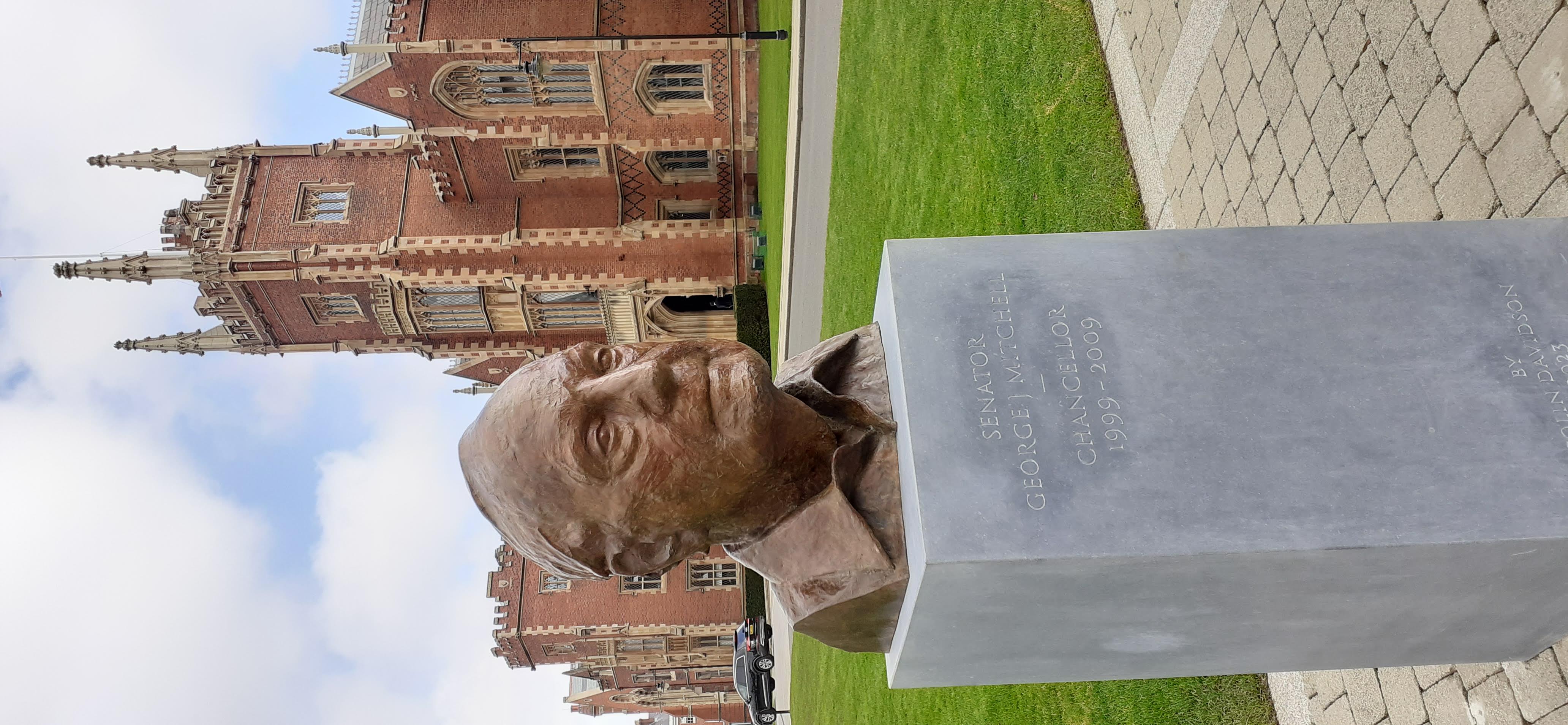
There weren't as many big names on Tuesday but I was in full poli sci nerd mode and enjoyed all the panels. The first speaker was Taoseach Micheal Martin, who spoke eloquently of the need to defend the hard won peace. He was preceded by Northern Ireland Secretary Chris Heaton Harris. You could tell we had a lot of heavy weights in town from the phalanx of black cars with chauffeurs:
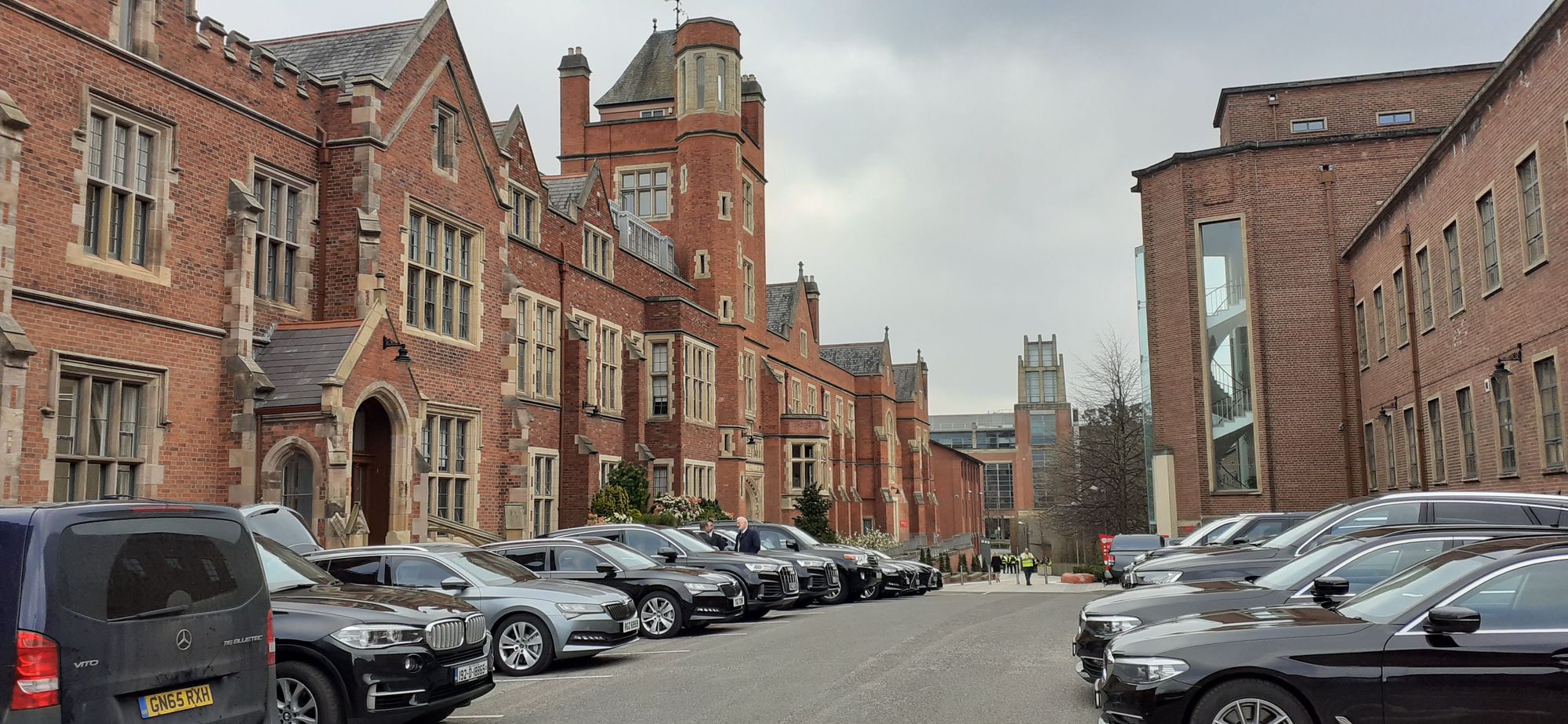
Second was a panel featuring all the political parties, Colum Eastwood of the SDLP, Mary Lou McDonald of Sinn Fein, Naomi Long of Alliance, Emma Little Pengelly of the DUP and Doug Beattie of the UUP.
All of the speakers bar one got a lot of applause for their appeals to get Stormont up and running and their general aspirations for NI. The exception was Emma, whose party won't go into government. She had this way of talking in bland generalities so it was hard to know what she was saying, beyond "no." Her most hilarious position was that she didn't care what foreign dignitaries had to say. She was there to represent the voters. So funny because she wasn't elected. She was 'co-opted' into her seat when the man who won it decided he'd rather keep his seat in Westminster and keep his higher salary. Zero credibility.
I liked this from Colum Eastwood, of Derry: "There's only so many constitutional fixes to bad attitudes." The DUP's intransigence over Brexit sounds very similar to its resistance to the Good Friday Agreement. Just an unwillingness to move an inch. The GFA was negotiated by Beattie's UUP, not the DUP, which, led by Rev. Ian Paisley, refused to support it.
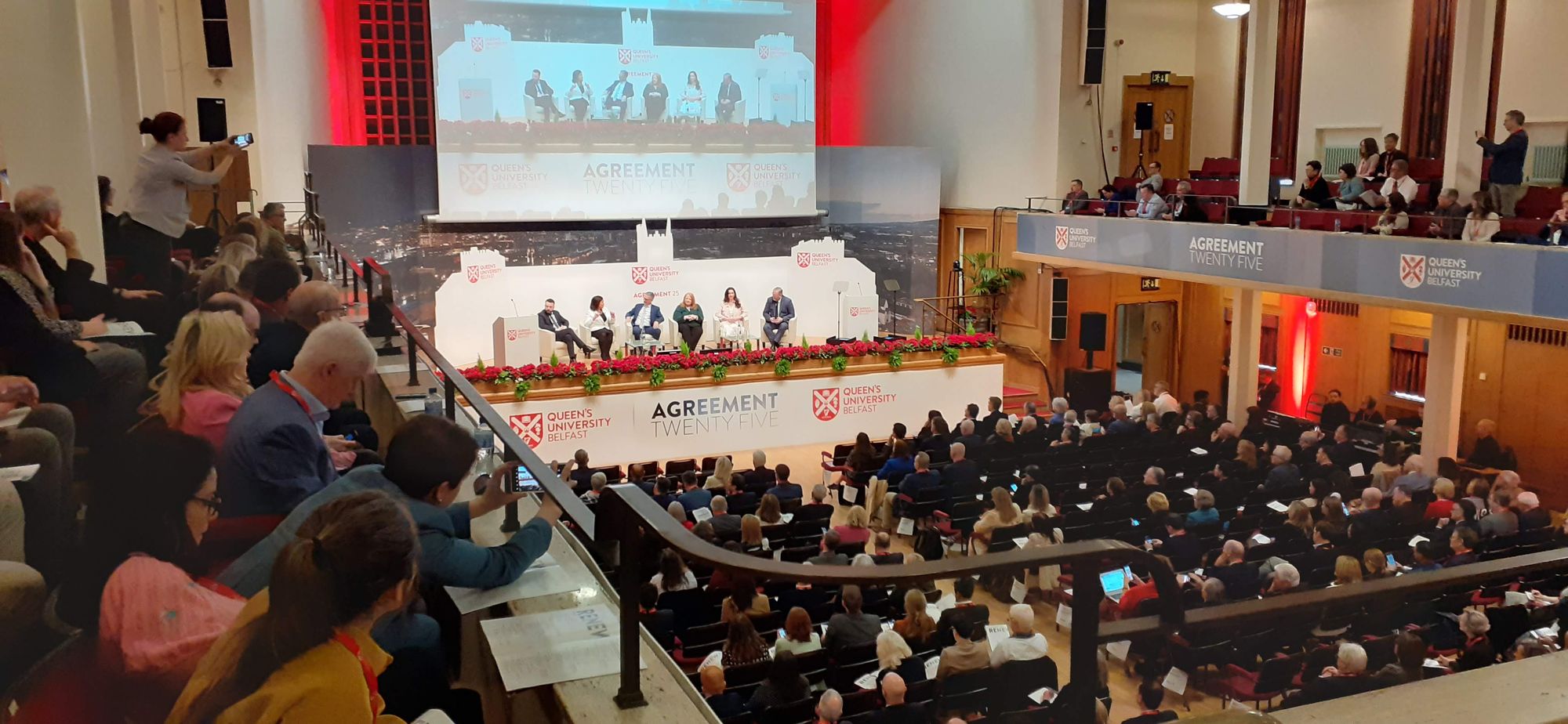
The next panel featured former Ireland President Mary Robinson, Congressman Richard Neal, European commissioner Maros Sefcovic and Dr. Amanda Sloat, National Security Council. I found Sloat very interesting. She did a degree at Queen's when she was young and was very eloquent in describing her experiences here during the troubles.
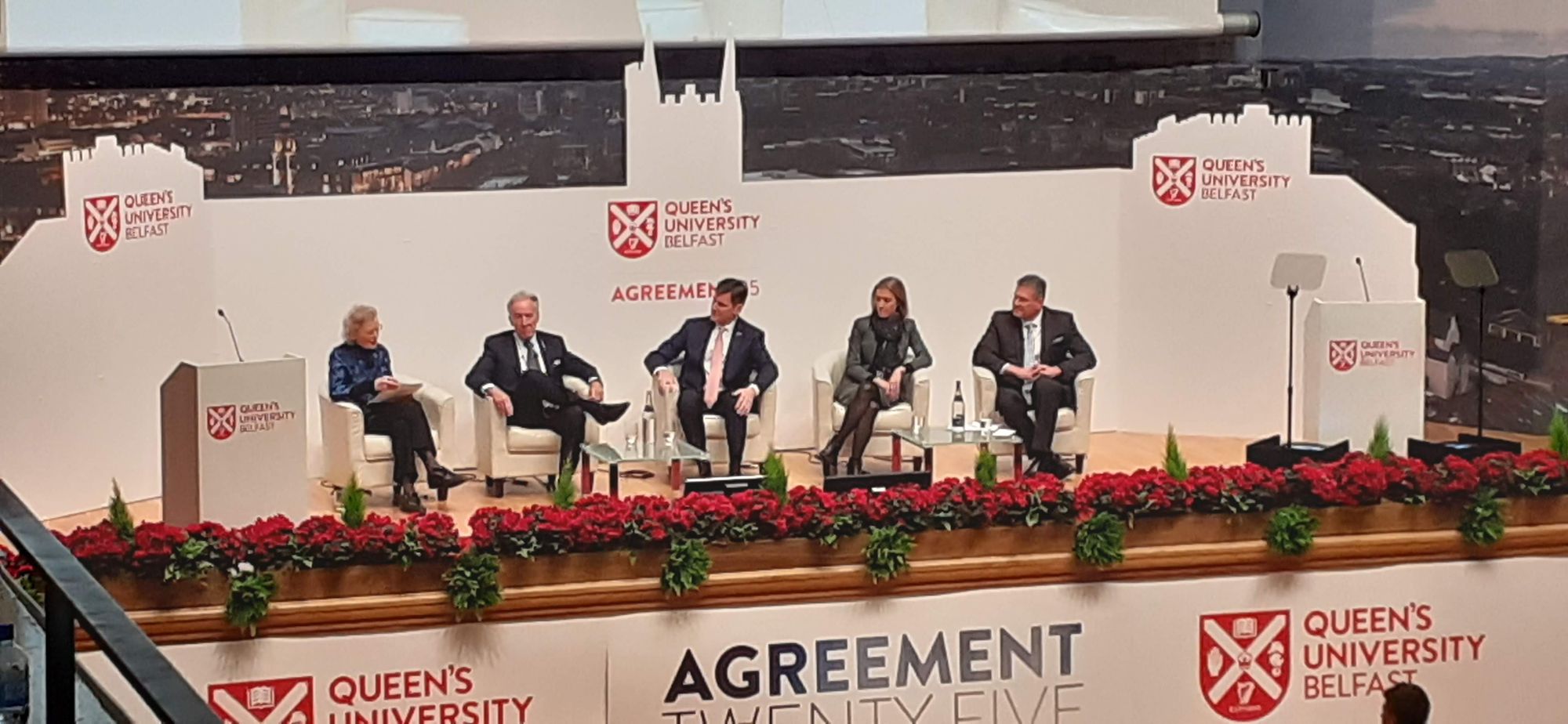
My next panel was a live recording of The Rest is Politics, the most listened to political podcast in the UK, It features Alastair Campbell, former member of Tony Blair's Labour government, and Rory Stewart, former Tory minister who resigned in disgust during BoJo's administration. They are both very well connected, so they bring interesting insights to topics ranging from Macron's visit to China, Dominic Raab's resignation, Biden's visit to Belfast, Germany's relationship with France, the future of Sudan, and so on. I enjoyed their podcast so much that I have listened to a few more episodes on my phone.
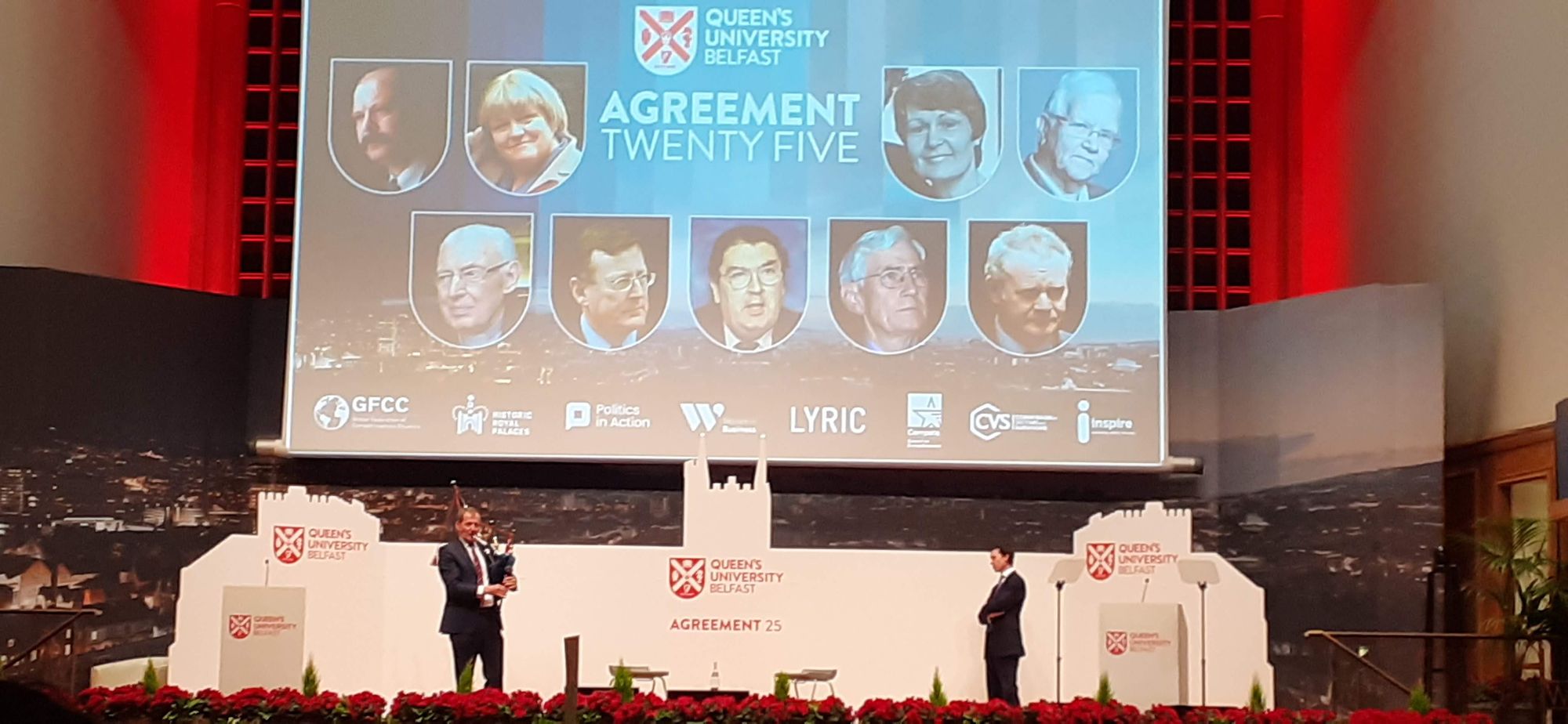
Apparently Campbell plays the bagpipes during the podcast. Here he plays a lament for those who contributed to peace in Northern Ireland but who are no longer with us. It was very moving.
My final panel of the day was on human rights and social justice. The Good Friday Agreement created a committee to explore defending human rights in NI. It spent many years drafting and advocating for a Bill of Rights for NI that was never adopted. As in so many spheres, the DUP was the impediment to its success. A series of Queen's law professors explored the issue from different angles and discussed a way forward. It was a very interesting and passionate discussion. One of the professors has done a forensic analysis of the papers tabled throughout the committee's work and found that the Loyalist Council (former paramilitaries) was the source of some of the language in the bill, ironic given that the unionists fought it.
From Queen's, home to play golf. Poorly on front nine, quite well on the back nine. Then an awards dinner, when I received an award for the Easter round (also poor on front, strong on back). Then home to my much-appreciated bed.
18 April